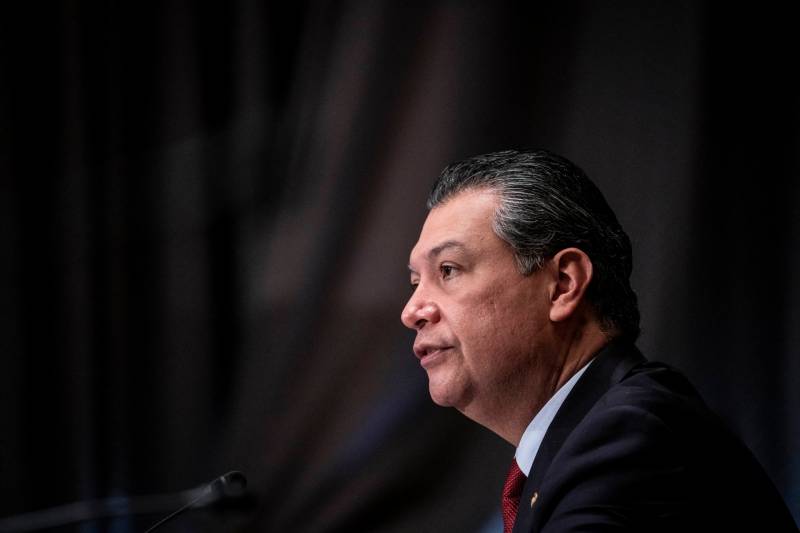California Sen. Alex Padilla acknowledged Monday that President Biden and the Democratic-controlled Congress are facing a mounting challenge in finding safe shelter for the increasing numbers of unaccompanied migrant children arriving in the U.S.
The task is increasingly daunting: The number of children and families crossing the border jumped 100% between January and February, while kids crossing alone has increased 60%, according to statistics released last week by U.S. Customs and Border Protection. And as a candidate for president, Biden promised more humane treatment of detained migrants than his predecessor.
“Definitely with the uptick in the numbers of folks we’re talking about, and better, more humane housing conditions, coupled with COVID-19 protocols, it is definitely more challenging,” said Padilla.
In an interview with KQED on the day of his first speech on the U.S. Senate floor, Padilla said the spike in apprehensions at the southern border should be an incentive for Congress to pass legislation that overhauls the nation’s immigration laws.
“It’s just the latest reminder of why immigration reform is long overdue,” he said.

And Padilla — who is chair of the Senate Subcommittee on Immigration, Citizenship, and Border Safety — reiterated his support for eliminating the Senate filibuster rules to ease the passage of legislation, including his first bill, which aims to lay out a pathway to citizenship for essential workers.

